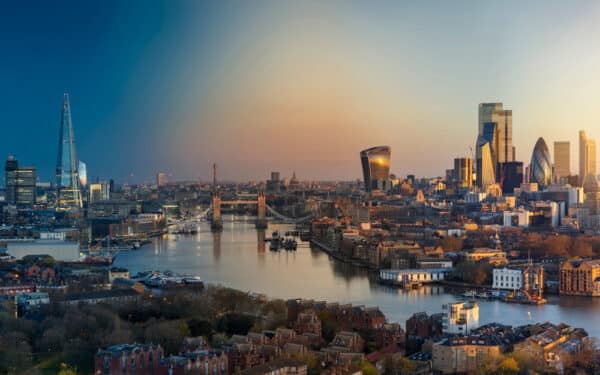For every one per cent increase in unemployment, 10,000 people die.
I have no idea whether this statement is true or false. It was a throwaway line in the film The Big Short – a slap on the wrist for two young investors who had bet on the 2008 financial crash and were celebrating their “win” when it finally arrived.
As human beings, we have a strong tendency to put arguments forward in a binary fashion. You’re either for X of for Y. Now choose your side.
But life does not operate like that. Very few things are either/or. Most are also/and. Framing things as opposing binaries is not only misleading, it is highly socially divisive. It encourages tribalism.
We have seen this fallacy emerge again and again during the current pandemic. Do we “save lives” by extending lockdown restrictions, or do we “protect the economy” by allowing people to go back to work?
Fueled by media hysteria at everything that could possibly be interpreted or spun as a government misstep, this dichotomy between economic activity and tackling the medical emergency has taken flight. It has allowed virtue signaling to reach new heights, with those who claim that their priority is “saving lives” trying to occupy the moral high ground and painting those concerned about the economy as heartless beings.
It’s all nonsense – and none of it is doing anybody any good.
First, let’s get a few things straight. Nobody, ever, in any circumstances “saves lives”.
We are all due to die at some stage. Medical and other interventions are designed to prolong life and make it more comfortable. Nobody can save you or me from death. They can push the date out by days, weeks, months, years or decades. They can help us lead our lives without pain, or with less discomfort or disability. But none of that is “saving lives”.
From that perspective, “protecting the economy” is about achieving the same goals – prolonging lives and making them more comfortable.
Studies have shown that losing one’s job (as many millions have and will, as economies across the world tank) has serious negative impacts on health. A higher risk of heart attacks and other stress-related illnesses has been documented. Unemployment also leads to higher mortality rates that can persist for up to 20 years after the job loss, with an average reduction in life expectancy of 1 to 1.5 years.
Recessions, of course, increase poverty. This is clearly associated with a decline in people’s quality of life, but also leads to less healthy lifestyles (higher consumption of alcohol and unhealthy food, for example, and less time for exercise), with a consequent increase in illness and premature death.
There is also a long-lasting impact on the children of laid-off workers. Both lower educational achievement and increased mortality later in life have been documented in the children of the unemployed.
With regards to the Covid-19 pandemic, there are also additional premature deaths to be expected as medical resources are diverted to dealing with coronavirus patients at the cost of other healthcare interventions. It has been suggested that, in the UK, tens of thousands of cancer sufferers will die prematurely because both diagnosis and treatment will inevitably be postponed.
Economic downturns also undermine social cohesion – another determinant of health and quality of life. People develop stronger views of inequalities in our societies – inequalities that are always made worse by economic recessions. There is a reduction in trust of public institutions that are seen to have been unable to protect the vulnerable. The political and social consequences are usually substantial.
Then there are the immediate impacts. During the Greek recession, imposed by the Troika during the Eurozone crisis, the number of people who took their own lives was greater than the lives lost during the Arab-Israeli seven-day war.
Finally, only some 20 per cent of our health and longevity depends on the intervention of the healthcare system. The vast majority depends on our social circumstances, earning power, lifestyle choices (also linked to earning power), and similar factors.
While the coronavirus pandemic has generated ever more strident calls for additional funding of our health systems, many seem to take a casual approach to the way economic destruction will directly affect that which determines the remaining 80 per cent of our wellbeing.
This pandemic is not about choosing between saving lives or saving the economy. It is about finding a balance between the competing ways of protecting and prolonging the lives of different groups. How do we find a balance between protecting those directly vulnerable to Covid-19 through acute care interventions and lockdown restrictions, and protecting the health, wellbeing and longevity of the whole population through minimising the immediate and long-term economic impact? Difficult political choices.
If the figure with which I opened this article is in any way correct, then deaths from the coming economic depression will dwarf those from the pandemic itself. Framing this debate as saving lives versus the interests of the economy may have allowed some to get on a fake moral high-horse. But that horse is a blinkered one, and we would be fools to follow it.
Dr Joe Zammit-Lucia is a physician, entrepreneur and co-Founder of RADIX, the think tank for the radical centre (www.radixuk.org)




